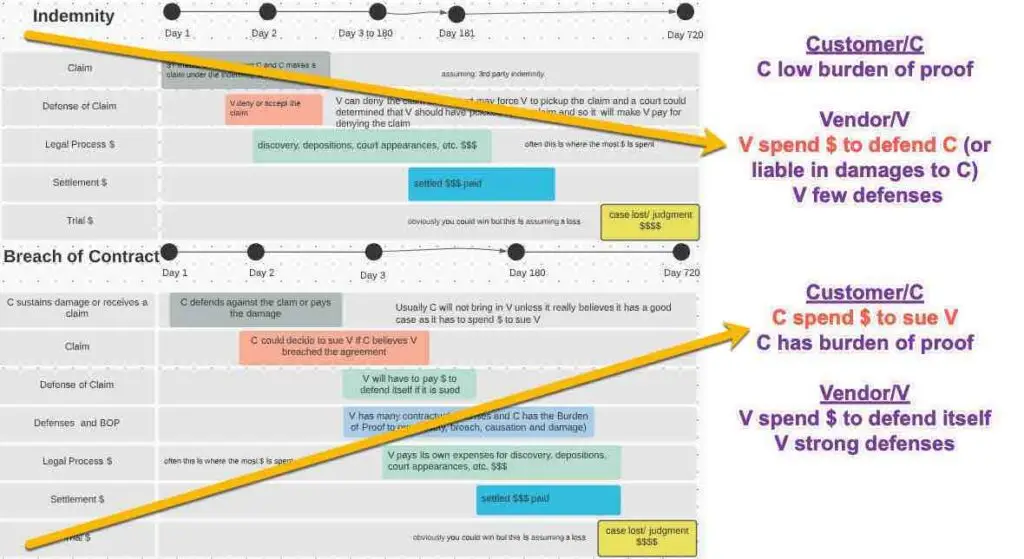
When negotiating a saas terms of service (representing the vendor of course), I am often trying to explain to my client the difference between an indemnity and a breach of contract claim. I have been noodling on this for years, trying to figure out a simple way of explaining probably the most complex contractual legal concept that exists (by the way, I am not sure I have nailed the explanation, but hopefully this is a good start when negotiating your saas terms of service).
So here goes (shortcut: it is all about the $). The key differences are as follows:
INDEMNITY:
(1) the VENDOR must spend $ to defend the CUSTOMER (or vendor will incur liability under the indemnity ($ to be paid in the future)), even before it is proven that the vendor is at fault, and
(2) the VENDOR has very few defenses to a claim.
Think about it this way: the vendor has to spend $ defending the customer from the claim and the customer does not have to spend any $ to make this happen. Now you know why customers want indemnities for everything. So the customer may act early to drag a vendor into a case without a lot of confidence of the vendor’s fault (i.e. weak evidence or proof of wrongful conduct).
BREACH OF CONTRACT:
(1) the CUSTOMER must spend $ to sue the VENDOR,
(2) the CUSTOMER has the burden of proof, and
(3) the VENDOR has several strong defenses to any claim.
Think about it this way: generally, customers will not sue vendors unless they believe they have a good case (aka high chance of winning) as the customer has to come out of pocket to prove the case (i.e. spend $). So the customer will act late (once they have the confidence they have a good case (i.e. strong evidence or proof of the wrongful conduct by the vendor)).
Which one would you want if you were the customer?
 Here are some good resources:
Here are some good resources:
Indemnification Clause Analysis
Disclaimer:
Indemnities are very complex and in an effort to communicate something important, I have left off a lot of important details (for example, third party vs first party indemnities, which party controls the defense and settlement of a claim, state law differences, etc etc).
This post is for informational and educational purposes only, and is not legal advice. You should hire an attorney if you need legal advice, which should be provided only after a review of all relevant facts and applicable law.
